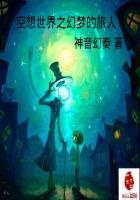"Fifteen minutes. Frank's getting you some sandwiches and I'll see the boys are fed. Our next refreshment stop is a placed called Blayney, much later in the night."
Meggie shared her mother's cup of hot, sugary tea, suddenly unbearably excited, and gobbled her sandwich when Frank brought it. He settled her on the long seat below baby Hal, tucked a rug firmly around her, and then did the same for Fee, stretched out full length on the seat opposite. Stuart and Hughie were bedded down on the floor between the seats, but Paddy told Fee that he was taking Bob, Frank and Jack several compartments down to talk to some shearers, and would spend the night there. It was much nicer than the ship, clicking along to the rhythmic huff-a-huff of the two engines, listening to the wind in the telegraph wires, the occasional flurry of furious huffs as steel wheels slipped on sloping steel rails, frantically sought traction; Meggie went to sleep.
In the morning they stared, awed and dismayed, at a landscape so alien they had not dreamed anything like it existed on the same planet as New Zealand. The rolling hills were there certainly, but absolutely nothing else reminiscent of home. It was all brown and grey, even the trees! The winter wheat was already turned a fawnish silver by the glaring sun, miles upon miles of it rippling and bending in the wind, broken only by stands of thin, spindling, blue-leafed trees and dusty clumps of tired grey bushes. Fee's stoical eyes surveyed the scene without changing expression, but poor Meggie's were full of tears. It was horrible, fenceless and vast, without a trace of green.
From freezing night it turned to scorching day as the sun climbed toward its zenith and the train racketed on and on and on, stopping occasionally in some tiny town full of bicycles and horse-drawn vehicles; cars were scarce out here, it seemed. Paddy opened both the windows all the way in spite of the soot which swirled in and settled on everything; it was so hot they were gasping, their heavy New Zealand winter clothing sticking and itching. It did not seem possible that anywhere outside of hell could be so hot in winter. Gillanbone came with the dying sun, a strange small collection of ramshackle wooden and corrugated iron buildings along either side of one dusty wide street, treeless and tired. The melting sun had licked a golden paste over everything, and gave the town a transient gilded dignity which faded even as they stood on the platform watching. It became once more a typical settlement on the very edge of the Back of Beyond, a last outpost in a steadily diminishing rainfall belt; not far away westward began two thousand miles of the Neverationever, the desert lands where it could not rain. A resplendent black car was standing in the station yard, and striding unconcernedly toward them through the inches-deep dust came a priest. His long soutane made him seem a figure out of the past, as if he did not move on feet like ordinary men, but drifted dreamlike; 88 the dust rose and billowed around him, red in the last of the sunset. "Hello, I'm Father de Bricassart," he said, holding out his hand to Paddy. "You have to be Mary's brother; you're the living image of her." He turned to Fee and lifted her limp hand to his lips, smiling in genuine astonishment; no one could spot a gentlewoman quicker than Father Ralph. "Why, you're beautiful!" he said, as if it were the most natural remark in the world for a priest to make, and then his eyes went onward to the boys, standing together in a huddle. They rested for a moment with puzzled bewilderment on Frank, who had charge of the baby, and ticked off each boy as they got smaller and smaller. Behind them, all by herself, Meggie stood gaping up at him with her mouth open, as if she were looking at God. Without seeming to notice how his fine serge robe wallowed in the dust, he stepped past the boys and squatted down to hold Meggie between his hands, and they were firm, gentle, kind. "Well! And who are you?" he asked her, smiling. "Meggie," she said.
"Her name's Meghann." Frank scowled, hating this beautiful man, his stunning height.
"My favorite name, Meghann." He straightened, but held Meggie's hand in his. "It will be better for you to stay at the presbytery tonight," he said, leading Meggie toward the car. "I'll drive you out to Drogheda in the morning; it's too far after the train ride from Sydney."
Aside from the Hotel Imperial, the Catholic church, school, convent and presbytery were the only brick edifices in Gillanbone, even the big public school having to content itself with timber frame. Now that darkness had fallen, the air had grown incredibly chill; but in the presbytery lounge a huge log fire was blazing, and the smell of food came tantalizingly from somewhere beyond. The housekeeper, a wizened old Scotswoman with amazing energy, bustled about showing them their 89 rooms, chattering all the while in a broad western Highlands accent. Used to the touch-me-not reserve of the Wahine priests, the Clearys found it hard to cope with Father Ralph's easy, cheerful bonhomie. Only Paddy thawed, for he could remember the friendliness of the priests in his native Galway, their closeness to lesser beings. The rest ate their supper in careful silence and escaped upstairs as soon as they could, Paddy reluctantly following. To him, his religion was a warmth and a consolation; but to the rest of his family it was something rooted in fear, a do-it-or-thou-shah-be-damned compulsion.















